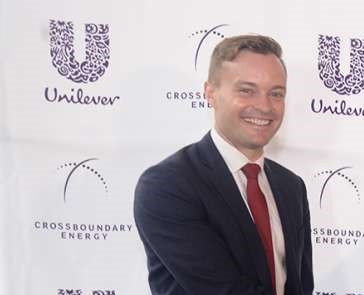CrossBoundary in partnership with The Rockefeller Foundation on Tuesday, April 24, 2018 officially launched the Mini-Grid Innovation Lab. The Lab, with support from The Rockefeller Foundation, is the first R&D Fund for sub-Saharan Africa that focuses exclusively on testing business model innovations in the mini-grid sector.

Over 600 million people in sub-Saharan Africa still lack access to electricity. The Lab conservatively estimates that at least 100 million of these people are most cost effectively served by mini-grids, and the investment required to connect them is $11 billion based on new analysis. This number could be as high as 290 million people, according to the International Energy Agency’s Africa Energy Outlook report, based on forecast cost reductions and extrapolating universal access in 2030.
However, mini-grid deployment in Africa has been low. Governments, policy makers and donors do not see mini-grids as a viable substitute to the main grid. This deters investors, who also struggle to understand the business case. According to Crunchbase, from 2012 to 2017, the top five mini-grid developers in Africa raised less than $100 million. In the same period, Africa’s pay-as-you-go solar home system sector raised over $750 million.
Working with over 15 leading mini-grid developers across Africa, the African Mini-Grid Developers Association (AMDA), Energy4Impact, Duke University, Carnegie Mellon University, the University of Massachusetts at Amherst, and Power For All, the Lab will test business solutions for mini-grids based in Africa so that they can provide more power, to more people, at less cost. In doing so, it aims to demonstrate to governments, policy makers, investors and donors that mini grids can play a key role in connecting 600 million people in Africa without power.
Gabriel Davies, Head of Energy Access, CrossBoundary says, “The Lab takes a data-driven, iterative testing approach to put numbers to the questions that governments, donors, and investors need answers to. Do mini-grids deliver power to the standard of the main grid? Do mini-grid customers use energy to increase their income? How do mini-grids integrate with the main grid? By partnering with developers, who are closest to the daily challenges of providing power to rural customers, we can answer these questions with real world data.”
An early finding of the Lab comes from analysis of millions of data points provided by developers from their customer smart meter data. Findings show rural mini-grids provide far more reliable power to their customers, with 2% downtime during evening hours, compared to the power some urban grid customers receive, which were found to have downtimes of 53% on average in Dar es Salaam in Tanzania. The Lab and the mini-grid developers are ready to work with governments, donors, academia, non-profits and other partners to support mini-grids to deliver affordable, reliable power to rural households and businesses.
Other near-term initiatives of the Lab include a closer look at how mini-grids can integrate with the main grid, and how household and business energy use on mini-grids change if they charge electricity tariffs on par with main grid tariffs.
Ashvin Dayal, Associate Vice President and Managing Director (Smart Power), of The Rockefeller Foundation, says, “We are delighted to be partnering with the Cross Boundary Group. The ultimate goal of this effort is to equip governments, investors and developers to dramatically accelerate rural electrification in an integrated manner, unlocking new economic opportunities for millions of households”.
Matt Tilleard, Managing Partner, CrossBoundary Group, concludes, “We’re launching the Mini-Grid Innovation Lab at a time where when momentum is building for the sector. Achieving the Lab’s objectives could potentially accelerate the ability of mini-grids to provide power to millions of people in Africa and deliver on SDG7.” He added, “We are especially proud to partner with The Rockefeller Foundation, whose interests are aligned with ours, to see this through.”
